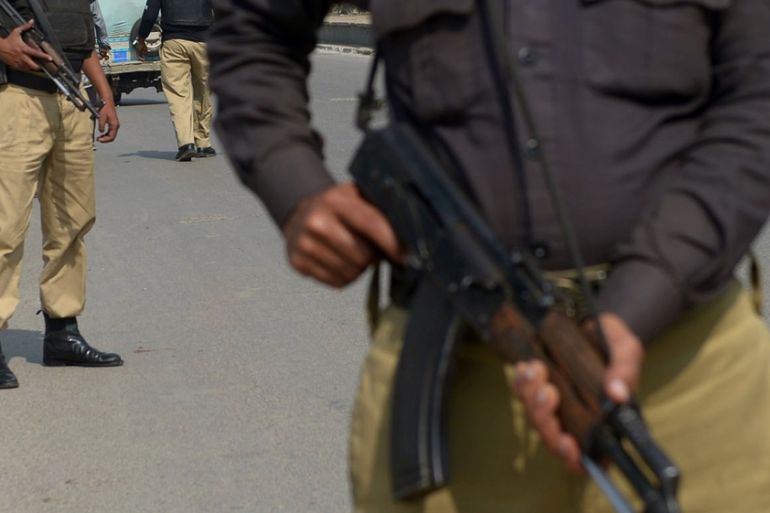Pakistan postpones execution of death-row prisoner
President obliges after appeals for review of case of Shafqat Hussain convicted in 2004 of murder while still a minor.

Pakistan’s president has postponed an execution scheduled for Thursday of a death row prisoner condemned as a teenager after appeals by human rights groups for a review of his case, according to officials.
Pakistani President Mamnoon Hussain signed the order late on Wednesday after an outcry on leading private news television channel talk shows.
Keep reading
list of 4 itemsPalestinian Prisoner’s Day: How many are still in Israeli detention?
‘Mama we’re dying’: Only able to hear her kids in Gaza in their final days
Europe pledges to boost aid to Sudan on unwelcome war anniversary
An anti-terrorism court in Karachi last week ordered that Shafqat Hussain, convicted of killing a seven-year-old boy in 2004, be hanged on March 19.
Hussain’s case has caused outrage from rights campaigners, who complain he did not get a fair trial and was only 15 at the time of the killing.
“The president has postponed the execution of Shafqat Hussain for 30 days,” a presidency official told AFP.
Prison officials in southern port city of Karachi, where the execution was going to take place at 0030 GMT, confirmed that they had received the orders from Islamabad and had cancelled the scheduled hanging.
Officials declined to say further when asked if the case will be reopened or Shafqat’s birth certificate will be taken into account as an evidence of him being a minor when charged of murder.
Hussain was working as a watchman in the metropolis of Karachi in 2004 when a seven-year-old boy went missing from the neighbourhood.
A few days later the boy’s family received calls from Hussain’s mobile demanding a ransom of half a million rupees ($8,500 at the time), according to legal papers.
First interrogation
Hussain was arrested and during his first interrogation admitted kidnapping and killing Umair, whose body was found in a plastic bag in a stream.
Hussain later withdrew his confession, saying he had made it under duress, but the case came before an anti-terrorism court which sentenced him to death.
Hussain had been due to face the noose on January 14 but the government halted the execution amid protests about his age, and ordered an investigation.
Reintroducing the death penalty was part of Pakistan’s move to step up the fight against armed groups since a Taliban massacre at a school in the northwestern city of Peshawar in December.
So far 48 convicts have been hanged to death.
The UN, the European Union and two rights groups – Amnesty International and Human Rights Watch – have called on Pakistan to re-impose its moratorium on the death penalty.
Amnesty International estimates that Pakistan has more than 8,000 prisoners on death row, most of whom have exhausted the appeals process.
Supporters of the death penalty in Pakistan argue that it is the only effective way to deal with violence.
Critics, meanwhile, say that Pakistan’s courts are largely unjust forums for decided cases, with rampant police torture, poor legal representation for victims, and unfair trials.